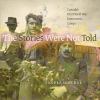Search Results: Returned 5 Results, Displaying Titles 1 - 5
-
-
c1993., McGill-Queen's University Press Call No: QWF 971.004 G116i Availability:1 of 1 At Your Library Series Title: McGill-Queen's studies in ethnic history, Volume: 18
-
-
-- Tragedy of the MS St. Louis2016., General, Nimbus Publishing Call No: 940.5318 L418s Availability:1 of 1 At Your Library Summary Note: On May 13, 1939, the eve of the Second World War, the MS St. Louis left port in Hamburg, Germany, headed for Havana, Cuba. Among the ship's passengers were more than six hundred Jews attempting to escape Nazi rule. But most of the visas the passengers had purchased turned out to be fake and after several days in limbo in Havana's harbour, the ship's captain turned back for Europe. Canadian and American activists petitioned their governments to accept the refugees on humanitarian grounds, but to no avail. On its return, the ship would distribute its passengers among European countries, and over the course of the war, an estimated 250 would die in the Nazi-run concentration camps. Illustrated with photos and sidebar features on the voyage, glimpses into the lives of passengers, a look at Canada<U+2019>s postwar refugee policy, and memorials dedicated to preserving the story of this tragic event in Canadian immigration history. Author Allison Lawlor worked as a reported for several daily papers in Ontario before moving to Nova Scotia in 2003. She lives in Prospect, Nova Scotia.
-
-
2018., University of Alberta Press Call No: 940.31771 S471s Availability:1 of 1 At Your Library Summary Note: From 1914 to 1920, thousands of men who had immigrated to Canada from the Austro-Hungarian Empire were imprisoned as "enemy aliens," many with their families. Most were Ukrainians; almost all were civilians. The Stories Were Not Told presents this largely unrecognized event through photography, cultural theory, and personal testimony, including stories told at last by internees and their descendants. Semchuk describes how lives and society have been shaped by acts of legislated discrimination and how to move toward greater reconciliation, remembrance, and healing. This is necessary reading for anyone seeking to understand the cross-cultural and intergenerational consequences of Canada's first internment operations.









